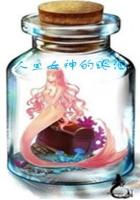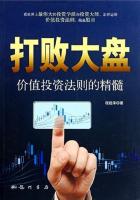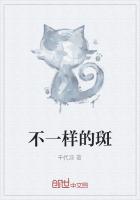Bill Cowan and his friends stared at this diminutive Frenchman, open-mouthed, as he poured forth a veritable torrent of unintelligible words, plentifully mixed with sacres, which he ripped out like snarls.I would as soon have touched him as a ball of angry bees or a pair of fighting wildcats.Not so Bill Cowan.When that worthy recovered from his first surprise he seized hold of some of the man's twisting arms and legs and lifted him bodily from the ground, as he would have taken a perverse and struggling child.There was no question of a fight.Cowan picked him up, I say, and before any one knew what happened, he flung him on to the hot roof of the store (the eaves were but two feet above his head), and there the man stuck, clinging to a loose shingle, purpling and coughing and spitting with rage.There was a loud gust of guffaws from the woodsmen, and oaths like whip-cracks from the circle around us, menacing growls as it surged inward and our men turned to face it.Afew citizens pushed through the outskirts of it and ran away, and in the hush that followed we heard them calling wildly the names of Father Gibault and Clark and of Vigo himself.Cowan thrust me past the clerk into the store, where I stood listening to the little man on the roof, scratching and clutching at the shingles, and coughing still.
But there was no fight.Shouts of ``Monsieur Vigo!
Voici Monsieur Vigo!'' were heard, the crowd parted respectfully, and Monsieur Vigo in his snuff-colored suit stood glancing from Cowan to his pallid clerk.He was not in the least excited.
``Come in, my frens,'' he said; ``it is too hot in the sun.'' And he set the example by stepping over the sill on to the hard-baked earth of the floor within.Then he spied me.``Ah,'' he said, ``the boy of Monsieur le Colonel! And how are you called, my son?'' he added, patting me kindly.
``Davy, sir,'' I answered.
``Ha,'' he said, ``and a brave soldier, no doubt.''
I was flattered as well as astonished by this attention.
But Monsieur Vigo knew men, and he had given them time to turn around.By this time Bill Cowan and some of my friends had stooped through the doorway, followed by a prying Kaskaskian brave and as many Creoles as could crowd behind them.Monsieur Vigo was surprisingly calm.
``It make hot weather, my frens,'' said he.``How can I serve you, messieurs?''
``Hain't the Congress got authority here?'' said one.
``I am happy to say,'' answered Monsieur Vigo, rubbing his hands, ``for I think much of your principle.''
``Then,'' said the man, ``we come here to trade with Congress money.Hain't that money good in Kaskasky?''
There was an anxious pause.Then Monsieur Vigo's eyes twinkled, and he looked at me.
``And what you say, Davy?'' he asked.
``The money would be good if you took it, sir,'' I said, not knowing what else to answer.
``Sapristi!'' exclaimed Monsieur Vigo, looking hard at me.``Who teach you that?''
``No one, sir,'' said I, staring in my turn.
``And if Congress lose, and not pay, where am I, mon petit maitre de la haute finance?'' demanded Monsieur Vigo, with the palms of his hands outward.
``You will be in good company, sir,'' said I.
At that he threw back his head and laughed, and Bill Cowan and my friends laughed with him.
``Good company--c'est la plupart de la vie,'' said Monsieur Vigo.``Et quel garcon--what a boy it is!''
``I never seed his beat fer wisdom, Mister Vigo,'' said Bill Cowan, now in good humor once more at the prospect of rum and tobacco.And I found out later that he and the others had actually given to me the credit of this coup.``He never failed us yet.Hain't that truth, boys?
Hain't we a-goin' on to St.Vincent because he seen the Ha'r Buyer sculped on the Ohio?''
The rest assented so heartily but withal so gravely, that I am between laughter and tears over the remembrance of it.
``At noon you come back,'' said Monsieur Vigo.``Ithink till then about rate of exchange, and talk with your Colonel.Davy, you stay here.''
I remained, while the others filed out, and at length Iwas alone with him and Jules, his clerk.
``Davy, how you like to be trader?'' asked Monsieur Vigo.
It was a new thought to me, and I turned it over in my mind.To see the strange places of the world, and the stranger people; to become a man of wealth and influence such as Monsieur Vigo; and (I fear I loved it best) to match my brains with others at a bargain,--I turned it all over slowly, gravely, in my boyish mind, rubbing the hard dirt on the floor with the toe of my moccasin.And suddenly the thought came to me that I was a traitor to my friends, a deserter from the little army that loved me so well.
``Eh bien?'' said Monsieur Vigo.
I shook my head, but in spite of me I felt the tears welling into my eyes and brushed them away shamefully.
At such times of stress some of my paternal Scotch crept into my speech.
``I will no be leaving Colonel Clark and the boys,'' Icried, ``not for all the money in the world.''
``Congress money?'' said Monsieur Vigo, with a queer expression.
It was then I laughed through my tears, and that cemented the friendship between us.It was a lifelong friendship, though I little suspected it then.
In the days that followed he never met me on the street that he did not stop to pass the time of day, and ask me if I had changed my mind.He came every morning to headquarters, where he and Colonel Clark sat by the hour with brows knit.Monsieur Vigo was as good as his word, and took the Congress money, though not at such a value as many would have had him.I have often thought that we were all children then, and knew nothing of the ingratitude of republics.Monsieur Vigo took the money, and was all his life many, many thousand dollars the poorer.Father Gibault advanced his little store, and lived to feel the pangs of want.And Colonel Clark?















